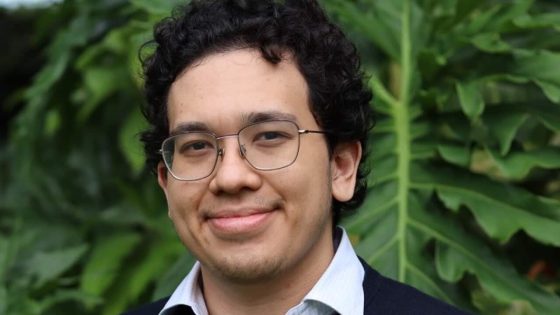Watch Insight’s episode Being Watched, which explores when being watched crosses the line, on
When Nathan Thomas and Daniel Delaney moved into a Brisbane share house in 2022, they never expected that their every move could be watched.
Along with six other housemates, they each rented rooms in the house.
“We were there for six months and then they sent us an email mentioning that the kitchen was going to be renovated,” Nathan told Insight.
The property manager notified all eight tenants that an electrician would be coming by as part of the renovations. But when the roommates returned home that day, eight CCTV cameras had been installed around the common areas.
Two outside, and six inside.
The tenants say they never consented to this, it was never mentioned in any previous correspondence and there was no clause or mention of camera installation or use in any of their lease agreements.
“It felt like Big Brother, but without the audition,” Daniel said.
The cameras inside were installed in the front room, kitchen, living room, laundry room, and the staircase leading to the lower levels of the house. One of the cameras was also pointing towards the door of Daniel’s bedroom.
“They wouldn’t see the exact angle I’d be sleeping, but they’d be able to see me go in and out,” Daniel said.
“I just felt pretty disgusted about it.”
One of the six security cameras installed inside the property. Source: SBS
We tried everything to get the cameras removed
The tenants immediately contacted the property manager who said the camera installation was at the request of the landlord who justified it as a way to monitor the property in case one of the tenants was to break or damage anything and for their security.
“They [property manager] said to go to the RTA (Queensland’s Residential Tenancies Authority), which we later found out was an impartial body,” Nathan told Insight.
“There was no real way we could have the cameras removed, although we pleaded to.”
After some investigating, they discovered the camera was a popular model easily bought online. Its features included an ultra-wide lens and audio recording capabilities.
Unlike in other Australian states, in Queensland it’s not illegal to record a conversation without the consent of the other people involved, but there are restrictions on what can be done with the recording.
Feeling paranoid in our own home
“I remember many conversations we had in the lounge room, and we paused mid-conversation looking up at the cameras going, ‘I don’t think we can have these conversations. I don’t know who’s listening’,” Nathan said.
The tenants also raised concerns about where the footage might be stored and who would have rights to the data.
They were told they could break their lease if they had further concerns, but given the cost of doing so, Nathan and the other tenants decided against it.
“We knew after a few talks with people here and there that it was a legal grey area,” Daniel said.
Avinash Singh is the principal lawyer at Astor Legal. Source: SBS
What does the law say?
Avinash Singh, principal lawyer at Sydney criminal law firm Astor Legal, says the Queensland Criminal Code stipulates that installing a video camera inside a private location, like a bedroom or bathroom, is a clear criminal offence.
“But if the owner of a house decided to put cameras in common areas, and they’ve rented bedrooms out to particular people, then the expectation is that that’s a common area,” Avinash told Insight.
“You wouldn’t expect someone to be engaged in a private act or showing a private part of their body in that particular area,” he said.
The roommates argued that the installation of cameras inside the property could be considered a breach of the ‘quiet enjoyment of the property’, which landlords are required to provide.
According to the RTA website, a tenant is entitled to reasonable peace, comfort and privacy, and must be able to make full use of their property; this is called quiet enjoyment.
But ‘quiet enjoyment’ is vaguely defined.
“If it’s not explicit that cameras are specifically prohibited, then you’ve got each party having a particular interpretation of a clause,” Avinash said.
“So then the only real avenue is for a court to make a determination and you probably don’t want to spend the amount of money and the amount of time involved in taking the matter to court.”
Court cases of this nature can take anywhere from six months to a year to come to a decision. For a renter, that could be longer than the lease agreement.
For many renters, the details around their rights can be a minefield to navigate.
The ongoing housing crisis in cities and towns across Australia is a further concern for those who feel if they complain, they might be evicted or forced to find other accommodation.
Nathan and Daniel both agree they never would have signed their lease had there been cameras inside the home or had there been mention of cameras in the lease.
After several weeks of communicating with the property management company and press coverage of the incident, all cameras were removed from the inside of the property, while keeping the two external cameras active.
However, when the lease came to an end, it was not renewed and Nathan, Daniel and the other roommates had to find new housing.





